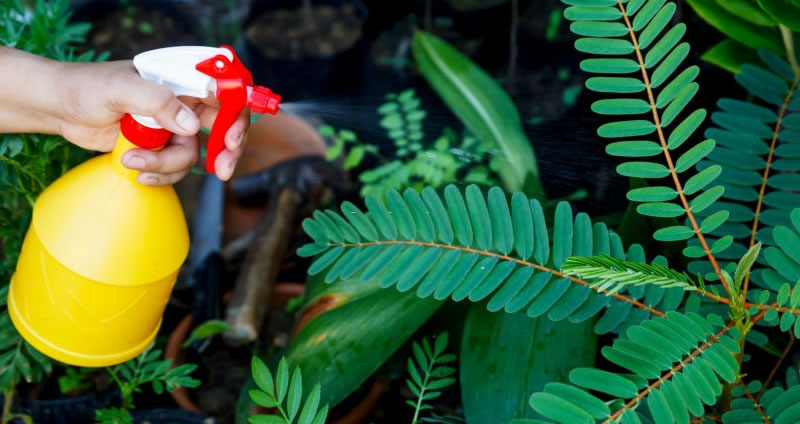Organic & Natural Ways to Fight Pests
Australia is home to various pests that can wreak havoc in your home when neglected. From rodents to scorpions to termites to poisonous spiders and many others. Nevertheless, a consistent and effective pest control management system will help you confidently guard your home against these pests.
Most pest control methods use pesticides. They offer fast and, even at times, instant results. However, they are developed using chemicals. Unfortunately, some of these chemicals have adverse effect to humans, non-targeted animals, and the environment. Therefore, utilizing them should always be our last resort.
This leads us to search for alternate solutions. We need effective, environmentally-friendly solutions that we can do apply at home.
Professional exterminators from Pro Pest Control Sydney have shared some expert tips on dealing pests naturally and effectively.
1. Rosemary, garlic & basil
Mosquitoes are common pests in a household. Garlic and herbs, rosemary and basil, can help to keep them at bay. Here are three different ways to use them to deter the blood-sucking insects:
- Add fresh rosemary or sage to your stove or heater to wade off mosquitoes.
- Mix garlic juice and water. Then, spray gently on exposed parts of the body.
- Plant basil in your garden or in a container so you can place them inside your home.
2. Lemon
Fleas could infest your pets and, if left untreated, can threaten their lives. Also, the may cling into your carpets and upholsteries. It might be difficult to get rid of them. However, there’s an effective remedy you can make to repel fleas. Here’s a simple recipe you can follow:
- Slice the lemon skin thinly.
- Add it to a boiling water, then leave to rest overnight.
- Pour the mixture in a spray bottle.
- Spray lemon solution on your pet’s fur and on infested areas in your home.
3. Insectary plants
When you have a small garden, be it a roof, terrace, or backyard, having an insectary plant is an advantage. It is meant to help in a biological pests management by attracting, feeding and providing habitat to beneficial insects. Wasp and flies are just two of the common predators it could repel. Here are some of the insectary plant species:
- Rocky Mountain Penstemon (Penstemon strictus)
- Goldenrod (Solidago spp.)
- Marigold (Tagetes tenuifolia)
- Cornflower (Centaurea cyanus)

4. Diatomaceous Earth
This powder consists of microscopic silica shells of algae that have sharp projections. These projections work well to cause damage to the cuticle of an insect. As a result, the insect leaks vital body fluid, causing death in the long run. This powder works best for the following insects:
- Caterpillars
- Ants
- Fleas
- Cockroaches
- Snails
5. Attracting birds and other animals
Having pets in the home or garden is another of effectively controlling pests within the home without relying on pesticides and traps. For instance, birds can work well to rid you of crawling insects and lizards. Also, cats can help fight rodents and even raise the alarm on snake presence.
6. Insecticidal Oils
These oils derange pests’ growth. It is used to kill eggs before they hatch. In fact, they have proven effective for controlling spider mites, bugs, aphids. Still, it is advisable to read the instruction manual before applying this oil.
7. Cedar Oil
Cedar oil has a natural repellant property similar to chemical compounds. It is truly a safe and non-toxic way of keeping away pests like cockroaches, mosquitoes, and ants. The oil can be on pet beddings as well to repel pests like fleas. Meanwhile, here’s a homemade recipe for cedar oil using the distillation method:
- Gather cedar leaves. You can use either bark and cedar berries.
- Pour 4 cups of distilled water into a pot with the cedar leaves.
- Place it on the heat source to boil.
- Put lid upside and down and fill the top with ice cubes.
- Once 3 cups of concentrated liquid is collected, turn off the heat.
- Strain the leftover liquid from the pot.
8. House cleaning
Of course, cleaning your home regularly is one of the most advisable and effective ways to prevent pest infestation. Additionally, here are some ways to prevent domestic pests:
- Wipe the table every after meal. Food leftovers should be stored in a tight and secured containers.
- Segregate all the rubbish and put in a bin.
- Food wastes should be wrapped tightly before disposing.
- Clean every corner of the kitchen countertops and cupboards.
- Use baking soda to clean toilets and bathrooms.
- Install screens to limit the access of flying insects.
9. Substitute rat poison with rat traps
Using poison work slowly in killing rats. In fact, it will take days before they die. Moreover, you will only know that there’s a dead rat when you are smelling its stinking corpse. Also, it is dangerous having those around if you have little children or pets at home as they might accidentally ingest the poison. This is why rat traps are better, they instantly kill rats. With rats traps, you would know exactly where the dead rat is.
10. Solar-powered equipment
With technological advancement, solar energy companies have come up with devices that are specifically designed to scare off pests. The devices collect energy from the solar panels fitted above to send vibrations through the spike fitted in the ground. These work effectively to drive away pests living beneath the ground.
11. Stick boards
This method works best for rodents and crawling insects. You can strategically position the boards in parts where insects are frequent. In fact, they are widely used to kill these pests.
12. Put wool fabric in the freezer
Most people may find this solution absurd. However, it actually it works. Freezing efficiently kills larvae that could be attached to wool fabrics. So, if you have seen clothes moths on your garments or curtains or other fabrics, put them in the freezer for at least four days. Then, put it in the washing machine. It should be free of any pests after that.
13. Candle
Candle light does not only give a romantic ambience but is also a great repellant for mosquitoes and flies. You can strategically place candles around the house for a fly-free home. Some of the most recommended candle scents include:
- Citronella
- Basil
- Thyme
- Clove
- Cinnamon
- Lemongrass
- Peppermint
- Rosemary
- Eucalyptus
14. Banana peels
Banana peels work as a great natural pesticide for your plants. You just need to chop them and bury them in the soil. This prevents aphids from damaging your plants. Moreover, you can put banana peels inside a glass jar and coat the inside of the jar in petroleum jelly. This should work as an effective trap for cockroaches.

15. Soapy water
Ants mostly move in a single path following a chemical trail they create. Spraying soapy water on this trail damages the chemical trail, effectively preventing them from proceeding.
16. Neem oil
The neem tree extract is used widely as both a poison and repellant for several insects. Also, it can be used to sterilize insects, effectively stopping further breeding. However, you should not use the oil frequently due to its toxic nature when ingested.
17. Beer Trap
Slugs and snails are attracted to the beer and can be easily drown when trying to get into the beer. Pour beer in a tin bowl. After that, place it outside the house to attract the slugs.
18. Eggshells
This can be used in your kitchen garden to prevent damage to your plants from snails. Break the eggshells and spread them around the plants. The sharp edges of the eggshell will cause damage to snails soft under the belly.
19. Conducting Repairs
You could seal cracks and fix any potential entry points of small pests, like ants and spiders. This way, you can keep them out before they infest your home.
20. Essential oils
There are a lot ways to use essential oils at home. For instance, it can instantly change the ambiance of a room, depending on the scent. Also, it can ease the stress and relieve some of the pain we are feeling. Similarly, it can also repel insects. You can either put some oil droplets directly on affected areas. Or you can mix it first with water, put in a sprayer, then spray affected areas in order to kill existing pests and prevent new ones.
Final Thoughts
Pests, if left unchecked, can cause the spread of diseases within the home. Also, they may even cause death.
Certainly, there are plenty of pest control measures you can take to address your pest problem. On the other hand, it would be ideal if you choose those measure that will not cause harm to the environment.
Most importantly, you should know what best action to take when things go beyond your control. You have local pest exterminators in your area who can help control your pest situation in the fastest way possible. And, of course, you can check for the eco-friendly options they offer.






